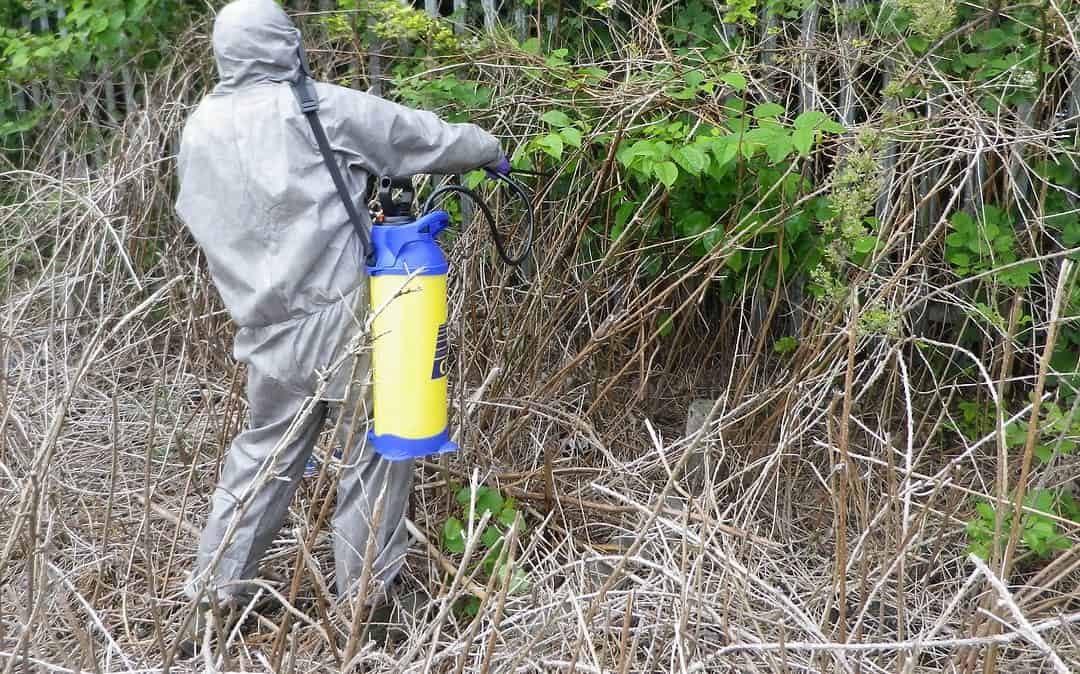Why is Japanese knotweed such a problem in 2024
Japanese knotweed is an invasive, fast-growing plant species.
That can cause damage to infrastructure and harm native biodiversity. Why is Japanese knotweed such a problem? Its deep root system and ability to spread. through underground rhizomes make it difficult to control. It is a significant problem that requires quick action to prevent spread in [2023]
Because it is an invasive species that can outcompete native plants and cause damage to infrastructure. It can grow through concrete and asphalt, causing damage to buildings and roads. It also has a deep root system that can make it difficult to control and can cause erosion. Additionally, it can reduce biodiversity by crowding out native species and negatively impacting wildlife habitats.
Japanese knotweed (Fallopia japonica) was originally brought to Europe and North America from Japan in the late 19th century as an ornamental plant. However, it quickly escaped cultivation and began to spread rapidly in the wild. This is why Why is Japanese knotweed such a problem?
One of the main reasons why Japanese knotweed is considered such a problem is its aggressive growth habit. It can grow up to 10 feet tall in a single growing season and can spread rapidly using underground rhizomes (root-like structures) that can extend up to 20 feet away from the parent plant. It can also reproduce from small fragments of rhizomes, making it hard to control.
Another problem with Japanese knotweed is its ability to invade and outcompete native plant species.
Moreover, It can form dense monocultures, which can reduce biodiversity and negatively impact wildlife habitats.
Furthermore, Japanese knotweed is known for its ability to cause damage to infrastructure such as buildings, roads, and bridges. Its deep root system can grow through concrete and asphalt, causing damage to foundations and weakening structures. It can also cause problems with drainage systems and can lead to erosion.
Japanese knotweed is also difficult to control:
Because it can re-grow from even small fragments of rhizomes. This means that traditional methods such as cutting or mowing are not effective, and chemical control is often required. However, using herbicides can negatively impact the surrounding environment, and it is important to follow the guidelines when used.
It is important to identify and report Japanese knotweed on your property or nearby, as it can be a legal requirement to control its spread.
Why is Japanese Knotweed Such a Problem When Selling a Property in the UK?
Japanese Knotweed, a plant that arrived in the UK during the Victorian era, has become a symbol of dread for property owners and potential buyers. Its aggressive growth and resilient nature mean it can cause significant damage to buildings, and its presence can be a legal headache. This article delves into why Japanese Knotweed is particularly problematic when selling a property in the UK, exploring its impact on property values, the legal implications, and the challenges it presents in the real estate market.
The Impact of Japanese Knotweed on Property Value
The presence of Japanese Knotweed can lead to a devaluation of property due to the potential damage it can cause. It has been known to grow through concrete, disrupt foundations, and invade homes, which naturally makes buyers wary. The fear associated with the plant, sometimes irrespective of the actual risk, can result in a substantial decrease in property value.
Legal Implications of Japanese Knotweed
Legally, sellers are required to disclose the presence of Japanese Knotweed. Failure to do so can result in legal action from the buyer post-purchase. Property owners are also responsible for ensuring that the plant does not spread to neighboring properties, which can lead to legal disputes and further financial penalties.
Difficulties in Selling Property Affected by Japanese Knotweed
Selling a property affected by Japanese Knotweed presents significant challenges. Sellers must manage the negative perceptions among buyers and often face a longer sales process. Buyers may demand price reductions or even pull out of deals, leading to a stigmatization of the affected property.
Remediation and Removal Options
While professional removal is often the most effective option, it is also costly and time-consuming. DIY removal carries the risk of inadvertently spreading the plant or not fully eradicating it, which can lead to further problems down the line.
Costs Associated with Removal
The financial implications of Japanese Knotweed are not limited to property devaluation. Removal costs can be high, and there may be additional expenses for repair work to damage caused by the plant. These costs need to be factored into the sale price or absorbed by the seller, impacting the final sale value.
Insurance and Japanese Knotweed
Japanese Knotweed can complicate obtaining building insurance, with some insurers reluctant to cover affected properties or increasing premiums as a result. Homeowners may find themselves in a position where they need to provide evidence of a professional treatment plan to secure insurance.
The Role of Surveyors and Estate Agents
Surveyors play a crucial role in identifying the presence of Japanese Knotweed, and their reports can influence a buyer’s decision. Estate agents must navigate the delicate process of marketing an affected property, balancing transparency with the need to secure a sale.
Case Studies: Successful Sales Despite Japanese Knotweed
There are instances where properties with Japanese Knotweed have been successfully sold. This section could detail case studies and the strategies employed, such as guarantees on removal work, to overcome the hurdles presented by the plant.
The Future of Japanese Knotweed in the UK
Research into more effective control methods continues, and there is hope that future advancements will reduce the impact of Japanese Knotweed on the property market. This section could explore the potential long-term outcomes and how they might influence property sales.
